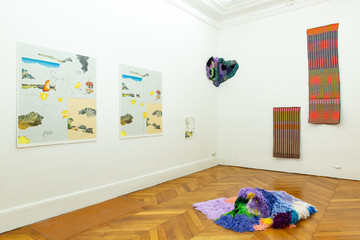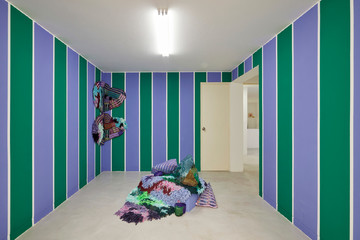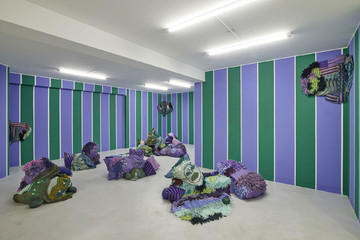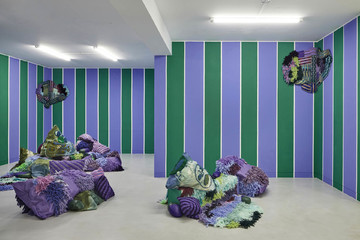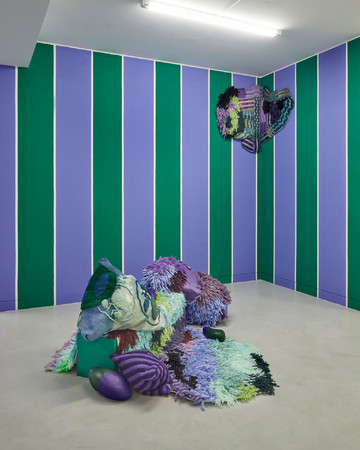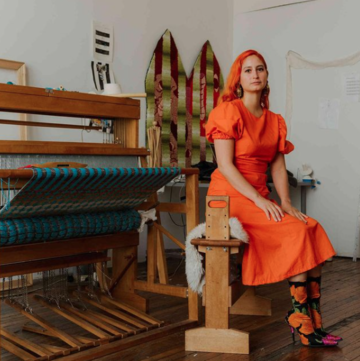
The work of Brooklyn based artist Sarah Zapata (1988, Corpus Christi-TX) is produced from the dislocated space she occupies in society as a queer artist raised under evangelical education in Texas, isolated from the Peruvian part of her family. Her practice is comprised of writing and the innovative use of textile techniques inherited from prehispanic and traditionally feminine crafts developed over generations, employed in Peruvian communities to this day. These manual processes are combined with modern and industrial carpet manufacturing techniques, to give way to colorful and tactile sculptures and installations, exploring themes such as gender, ethnicity, colonialism and performativity.
She has held solo exhibitions with Performance Space New York (NY), Deli Gallery (NY), el Museo del Barrio (NY), amongst others. Her work has been exhibited at the New Museum (NY), Museum of Art and Design (NY), Leslie-Lohman Museum of Gay and Lesbian Art (NY), Boston University (MA), LAXART (CA), Paul Kasmin (NY), Arsenal Contemporary (NY), EFA Project Space (NY), Hudson Valley LGBTQ Community Center (NY). Zapata has also completed residencies at the International Studio & Curatorial Program (ISCP), the Museum of Arts and Design (NY), MASS MoCA (MA), A-Z West (CA), and Wave Hill (NY). She has been the recipient of grants from the National Association of Latino Arts and Cultures, the Foundation for Contemporary Arts, and the Dallas Museum of Art. Zapata is a 2019-2020 Literature Fellow with the Queer Art Mentorship program.
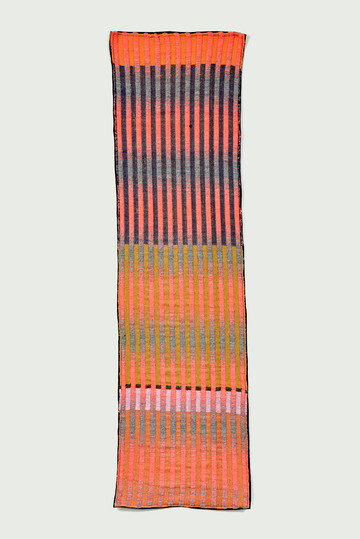
Handwoven natural and synthetic fiber, felt
195 x 52 cm
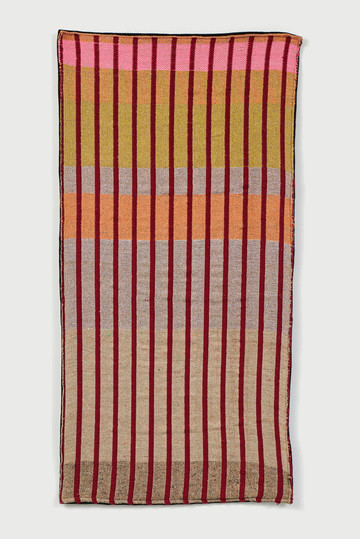
Handwoven natural and synthetic fiber, felt
110 x 56 cm
Textiles have such a transformative quality that speaks to labor and luxury and protection. With these pieces, Zapata wanted to really examine what that looked like if the viewer understood the struggle and darkness that can exist in her work. It is easy to get lost in the beauty of objects, so she wanted to take that attraction and assign a narrative of the bondage one feels in dealing with guilt and self-doubt. Guilt is a means of societal control, and because many queer people have grown up in religious situations, it can be overwhelming trying to understand how to move forward in that pervasiveness. Textiles are incredible signifiers of one’s experience.
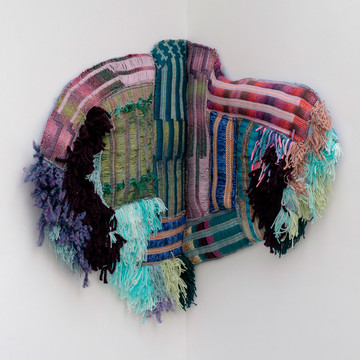
Handwoven cloth, natural and synthetic fiber
80 x 112 cm
Raúl Silva (b. 1989) is a visual artist that perceives himself as a researcher in arts. In the last years he has focused on working from historic memory, approaching the relations between the colonial religious imagery, the ideal of modernity, the paradigm of progress and the aftermath of the internal armed conflict in Perú. Recently focused on science fiction narratives and design.
His methodological approach involves academic research, curatorship and art as a technical medium to build a series of projects based on the reproduction of visual historical archives, texts and artworks. He holds a BA in Fine Arts from Pontifical Catholic University of Peru and is currently studying a MA in Arts at the Dutch Art Institute in the University of ArtEZ. Among his most recent presentations include: For future’s sake at the Fujifilm X-Space (Shanghai, 2021) and Por el bien futuro at Crisis Gallery (Lima, 2021). He has participated in publications with the following magazines: Bisagra, Textos Arte (PUCP), Ansible, Illaky Times, among others.
He has recently obtained a Grant for artistic projects for a publication project in co-authorship granted by Centro Huarte (Navarra, 2021) and he has obtained Honorable Mention in the ICPNA Contemporary Art Contest (2018) and the X Painting Salon of the Central Bank of Reserve of Peru (2018). Finalist of the Passport for an Artist Contest (2015 and 2016) organized by the French Alliance and the French Embassy in Peru, among others.
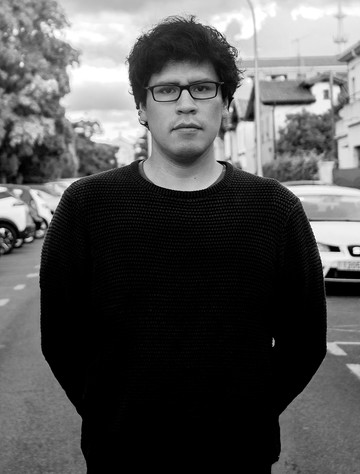
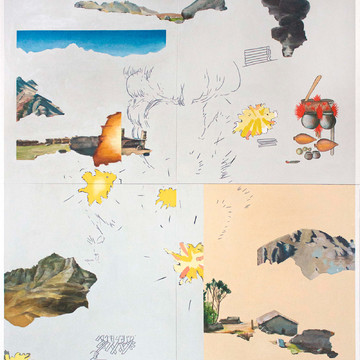
Drawing and oil on paper
120 x 100 cm
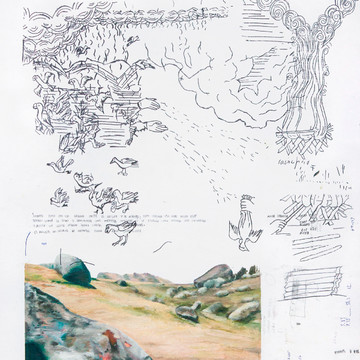
Drawing and oil on paper
50 x 42 cm

